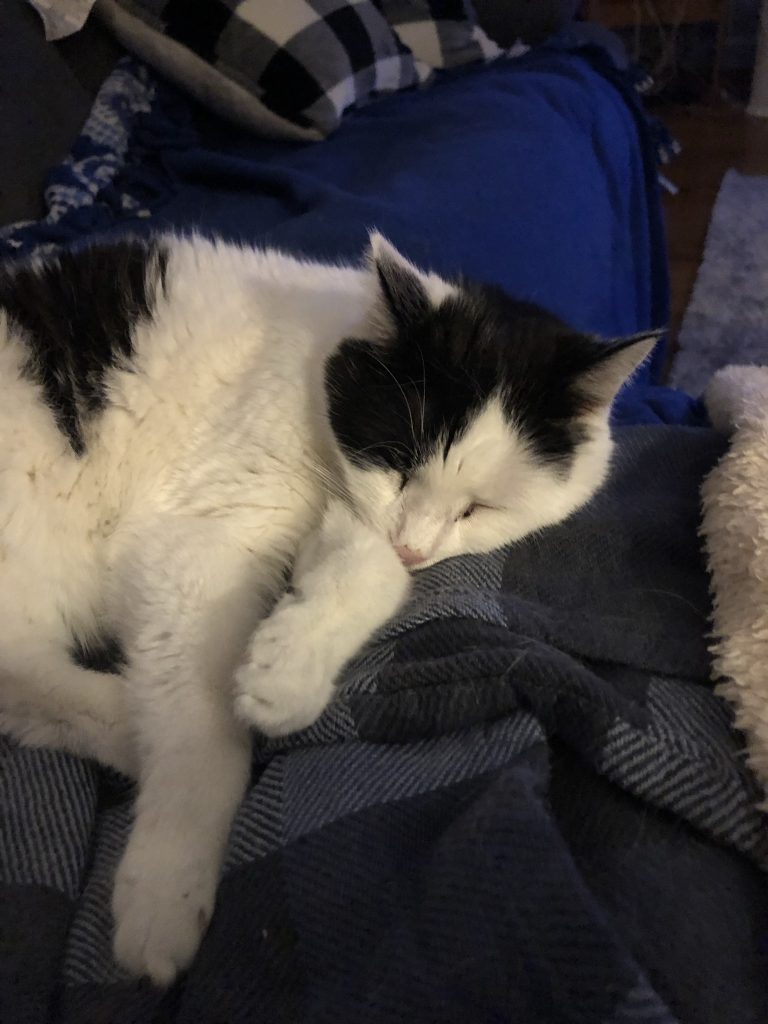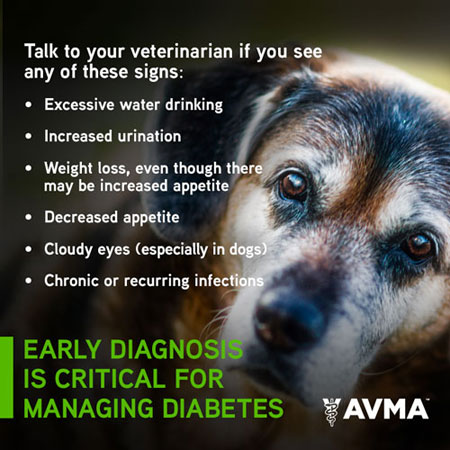Caring for a Companion Animal with Diabetes

By Kailyn Carr
As is the case with people, our furry friends are subjected to a variety of medical conditions as they get older. One of the most common diseases impacting aging and obese pets is diabetes mellitus. Many people are intimidated by the idea of adopting animals with diabetes, thinking that the disease cannot be successfully managed. But, with proper care and treatment, diabetic dogs and cats can live long and healthy lives.
Animals adopted through the Humane Society of Loudoun County (HSLC) will have a medical record noting any pre-existing diseases, including diabetes. I highly recommend fostering or adopting a pet with diabetes. Consider their condition an opportunity to provide extra love and support to animals that may not have been shown that kindness before coming into your life.
Spotlight on Oreo
Pets with diabetes have a very special place in my heart because I happen to have one of my own. Oreo is an older cat at the sprightly age of 13; he has been a part of my family since he was just a few weeks old. He was diagnosed with diabetes about 2 years ago after we noticed he had been losing large amounts of weight. While we had to adjust to caring for him, there was never any doubt that we would do everything we could to make him as healthy and happy as we could.
Ever since the diagnosis, Oreo has thrived on his medications and adjusted feeding schedule. Moreover, he remains the lovable, cuddly, attention-seeking (for all of the right and wonderful reasons), and vocal cat that we grew up with. We sometimes forget that he’s a senior cat when he shows so much youthful energy while playing with his toys.

Caring for Pets with Diabetes
- Do your research using credible sources like PetMD and AVMA.
- Listen to your vet as they will know your pet’s history. Don’t be afraid to ask them questions about diet, exercise and medication.
- Monitor your pet’s weight and behavior on a weekly basis. If you notice any dramatic shifts, contact your vet immediately.
- Be patient as you and your pet adjust to a new care plan.

